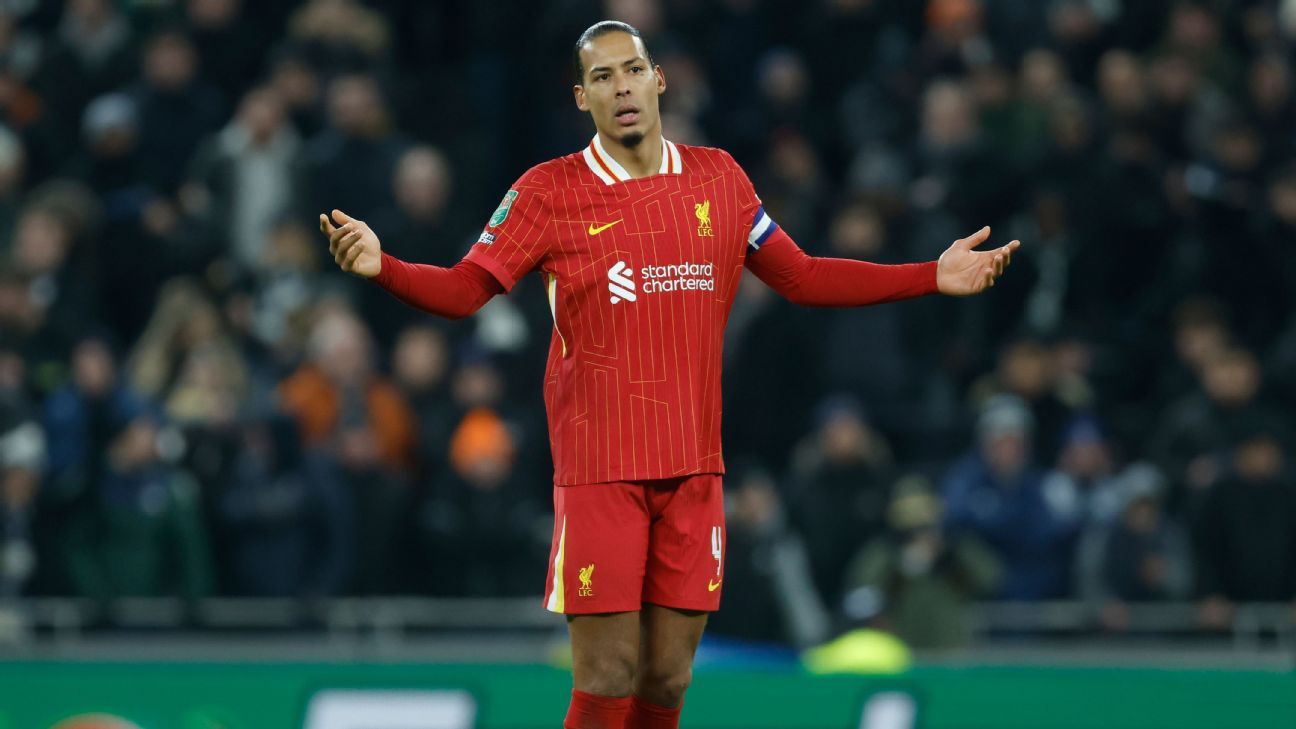
Tim Vickery, South America correspondentAug 30, 2024, 09:31 PM
One of the striking things about Manchester United's poor performance in the 2023-24 season was how open they were in midfield, and how easy it was for opponents to play through the lines of manager Erik ten Hag's team. The lung power of Fred was no longer there, age appeared to have caught up with Casemiro, and Sofyan Amrabat was something of a disappointment -- a reminder that players who star at the FIFA World Cup are not always the wisest signings.
The midfield problem has not gone away. In the curtain raiser to the current season, United looked alarmingly vulnerable to the Fulham counter attack. With the roof leaking, it is not a great surprise that the Ten Hag is turning to Uruguay midfielder Manuel Ugarte to help provide a bit of protection.
The young Celeste star -- he turned 23 in April -- is an obvious fit. He is a mobile midfield ball winner, but a team like United, with Ten Hag's desire for controlled possession, cannot limit themselves to a mere destroyer. And Ugarte is also impressive with the ball at his feet, giving quick, crisp passes to players around him.
There is something in Ugarte that brings back memories of Javier Mascherano, the Argentine holding midfielder who, after a strange few months with West Ham United, established himself down the road at Liverpool. Mascherano, of course, went on to excel as a vital part of Pep Guardiola's Barcelona, where he ended up featuring in the middle of the defence.
Mascherano's first coach with Argentina was Marcelo Bielsa. Now in charge of Uruguay, Bielsa did something similar with Ugarte in the semifinal of the Copa América. Instead of filling his normal position in front of the back four, Ugarte featured against Colombia on the left of a back three -- an experiment which ended after half an hour, when Rodrigo Bentancur limped off injured and Bielsa was obliged to readjust, bringing Ugarte back to his conventional position. But it was an interesting tactical switch, showing the potential versatility of United's new signing.
The Uruguay national team has always been important in Ugarte's career. He first came to global attention shortly before the COVID-19 pandemic, playing impressively for Uruguay's under-23 side in the Olympic Games qualification tournament when he was only 18.
With the impatience of youth, Ugarte could argue that he had waited years to be an overnight sensation. He made his debut for Fenix, a small club in Uruguay's first division, at the age of 15, and was the first player born in the 21st century to feature in the country's top flight. But coaching changes saw him relegated, sometimes to the Fenix third team. At the age of 17 he went in again, and this time it was for keeps.
His performances in 2019 were so good that he was fast-tracked into that Uruguay under-23 squad for the Olympic qualifiers at the start of the following year. And there he did so well, holding his own in the midfield battle against players four years older, that it was only a matter of time before Europe called.
1:32
Why Manuel Ugarte is a 'really good signing' for Manchester United
Gab & Juls react to Manuel Ugarte's transfer from PSG to Manchester United.
The normal route for a promising player from Fenix would be to be snapped up by Penarol or Nacional, Montevideo's giants, before then making the move access the Atlantic. Ugarte leapfrogged this phase, backing himself to enter European football with a small club and work his way up.
The entry point was Famalicao in Portugal. A solid season there led to a move to one of the giants, Sporting CP, and two excellent campaigns there won him a move to Paris Saint-Germain, where he started to acquire the habit of winning silverware.
Meanwhile, during the course of the last season he became a key player for the senior Uruguay side. Ugarte went to the Qatar World Cup, but as an unused reserve. The coming of Bielsa changed all that. With Ugarte perhaps bringing back memories of Mascherano, Bielsa put him straight in the team as the defensive midfielder. The role had previously been filled by the experienced Matías Vecino, who was dropped to the bench.
A few months ago, Vecino announced his retirement from the national team -- a relatively rare occurrence with Uruguayans, especially because, at the age of 32, the Lazio midfielder would seem to have plenty of football still left in him. But Vecino declared that his cycle had come to a close -- a reflection which may well have been caused by seeing close hand how convincingly he had been replaced by Ugarte.
Uruguay finished last year's burst of six World Cup qualifiers as South America's in-form side, beating Brazil with ease and then winning away to Argentina -- the only defeat that Argentina have suffered since their World Cup triumph in Qatar. Ugarte was excellent in both matches. And after showing such grit, common sense and flashes of talent in the sky blue, it seems a fair bet that can do something similar in the deep red of Manchester United.
 (1).png)
 4 months ago
8
4 months ago
8

















